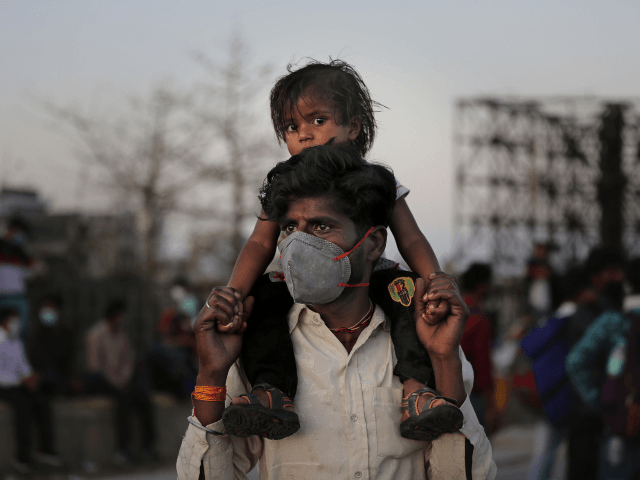The Supreme Court of India on Tuesday called for feasibility studies on a program called “One Nation, One Ration Card” that would give impoverished residents and migrants a single card to obtain food and other welfare benefits during the coronavirus emergency.
The court issued its directive in response to pleas from poverty advocates who said a single identity card should be issued to help the needy access an expanded range of government benefits during the pandemic. The current system was said to be cumbersome and confusing because it requires multiple identity documents, especially for migrant workers who find themselves under coronavirus lockdown while away from home.
The notion of implementing “ration cards” might sound to Americans or Europeans like an unsettling return to a bygone era of severe wartime scarcity, but India has long maintained an elaborate system of ration cards for food subsidies, based on household income. They are similar in concept to food stamps, but usually much more restrictive in terms of what foods can be purchased with them. Many of India’s ration cards refer specifically to food grains.
In addition to simplification of the system, supporters of the One Nation, One Ration Card system argue that it will help wealthier parts of India to provide food support for people in the most impoverished districts.
The Tribune of India noted on Tuesday that government studies show the coronavirus shutdown has seriously interfered with food aid for the impoverished, significantly increasing the number of beneficiaries who say they are reducing their food intake or skipping meals altogether.
The Tribune called for emergency measures such as the One Nation, One Ration Card to expedite assistance until the coronavirus lockdown can be lifted.
There were already plans to begin phasing in such a system over the summer, so the Indian Supreme Court and other advocates of the system are basically asking to fast track the feasibility studies and implement it early. The plea before the court wanted the unified ration cards to be established even faster, without spending time on feasibility studies, but the court rebuked that request, saying it would not micromanage the government from the bench.

COMMENTS
Please let us know if you're having issues with commenting.